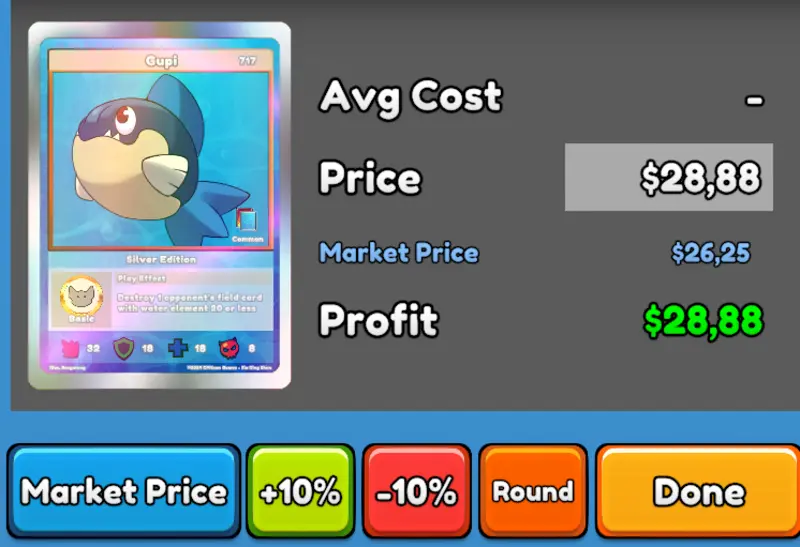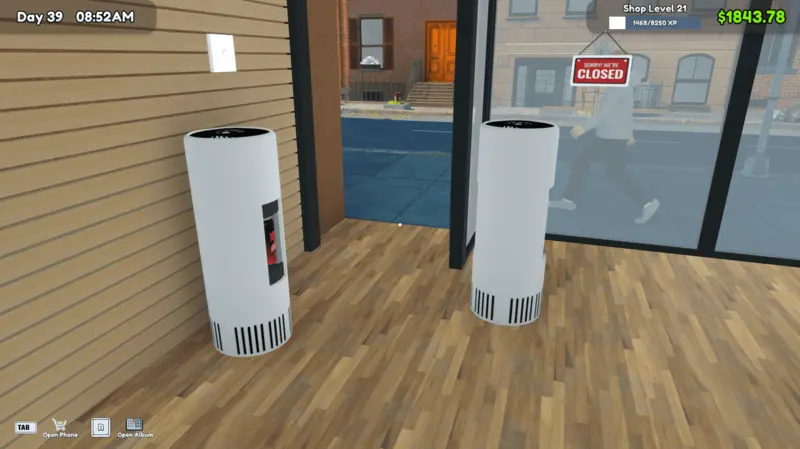Essential tips and tricks to help you streamline your card shop’s operations, boost profits, and free up more time for opening packs.
TCG Card Shop Simulator: Tips and Tricks for Beginners
These tips and tricks are designed to help players enhance their store during the early access period. While many discoveries will come naturally through gameplay, some players prefer a hands-off approach, allowing the shop to run smoothly while they open packs at their leisure. By focusing on optimizing store profitability, this guide enables players to concentrate on single card sales and building their collection.
Learn how to manage customers efficiently, optimize shop layout, and implement smart strategies to keep your business thriving while you enjoy the thrill of cracking open packs.
Managing the Morning Rush for Maximum Tournament Profits
If your shop has play tables, it’s crucial to get the morning rush through the cash register quickly. Leaving a slow-speed employee at the register will delay customers from sitting at the tables, ultimately reducing your tournament earnings. To avoid this, consider stepping in to handle the register for a few customers when it gets backed up. Just remember, if you don’t assign your employee a new task, they’ll automatically return to cashier duties once you’re finished.
Rounding Prices: Speed Up Transactions
If you have an employee running the register, rounding prices can make transactions up to three times faster, as it eliminates the need to count out every penny. Before pressing the “Round” button, consider any markups you’ve applied. For example, if a 10% markup brings the total to $20.50, rounding down to $20 might encourage sales more than rounding up to $21, which could exceed a customer’s budget.

For single card sales, rounded prices can sometimes exceed market value by 20% or more, particularly if the final price is around $10. Customers may occasionally say, “I’ll have to think about this” or “I’m too broke,” but as long as they don’t complain that it’s “too expensive,” the item will eventually sell. Keep in mind that high-ticket items, like a $2,000 card, may take longer to sell-even at market price-until the right customer comes along.
Market Pricing: Balancing Profit and Sales Speed
In most cases, your inventory is sold above its unit price, but setting prices effectively depends on your sales strategy. If you’re aiming for faster XP, pricing items below the market rate can lead to quicker, bulk sales, boosting your XP. However, be cautious: pricing at the unit cost won’t cover bills or shipping expenses. Keep in mind that a slow cashier can bottleneck this approach, limiting the number of daily sales. Alternatively, setting prices above market value results in slower sales but higher profit per item. Generally, a markup of +10% is unlikely to upset customers and can significantly improve your store’s profitability.
Optimizing Store Cleanliness: The Double M100 Strategy
Placing an open box of cleaning spray near the entrance can be a quick fix for chasing down smelly customers. However, as the game progresses, this can become time-consuming and disruptive. You might notice that the M100 cleaner isn’t as effective as you’d like or that placing multiple units around the store is too costly.

A more efficient solution is to set up two M100 cleaners right by the entrance and arrange your furniture to funnel customers through this area. This setup ensures the cleaners cover more than 99% of customers, as long as they are regularly stocked with cleaning spray. Before long, you’ll find that store cleanliness becomes an automated process that you barely need to think about!
End-of-Day Routine: Clearing Out for Late-Night Sales
At the end of each day, it’s crucial to kick customers out of the store to maximize profits. Head over to the playing tables and press the “Move” key to make everyone get up. While some customers will leave right away, others might head to the register to make last-minute purchases. This simple action not only clears the store but can also lead to unexpected sales, boosting your overall profits before closing up for the night.
Maximizing Storage: Upgrade to Full-Size Storage Racks
Always prioritize upgrading your storage racks to full size. This not only streamlines stocking operations but also provides a clearer overview of your store’s inventory needs. Early in the game, you’ll need every bit of storage space available, and half-sized racks simply can’t hold enough items. Additionally, having a variety of products in your store encourages employees to restock more efficiently and sets you up for future expansion. Don’t be afraid to sell furniture in the store that is taking up too much space for its use.
Pack Opening Tips
Open packs in whatever way brings you the most joy. This guide is here to help optimize your store, not to dictate how you should have fun in the game.
These tips and strategies are designed to help optimize your card shop and enhance the gameplay experience. Since the game is still in early access, updates may bring new features and strategies. Feel free to share any additional tips or strategies you’ve discovered in the comments below. Your insights could be valuable to others and help everyone make the most of their time in the game. Happy trading and pack opening!